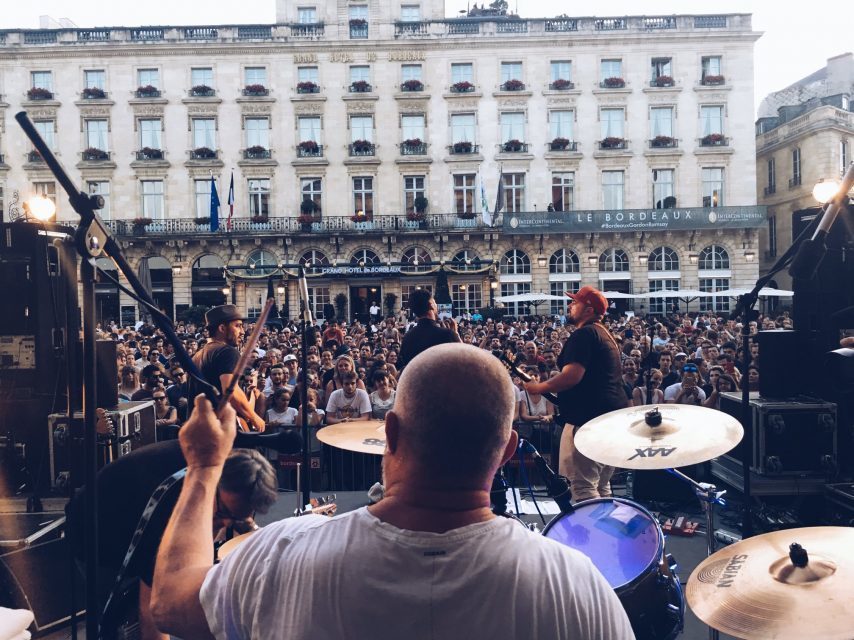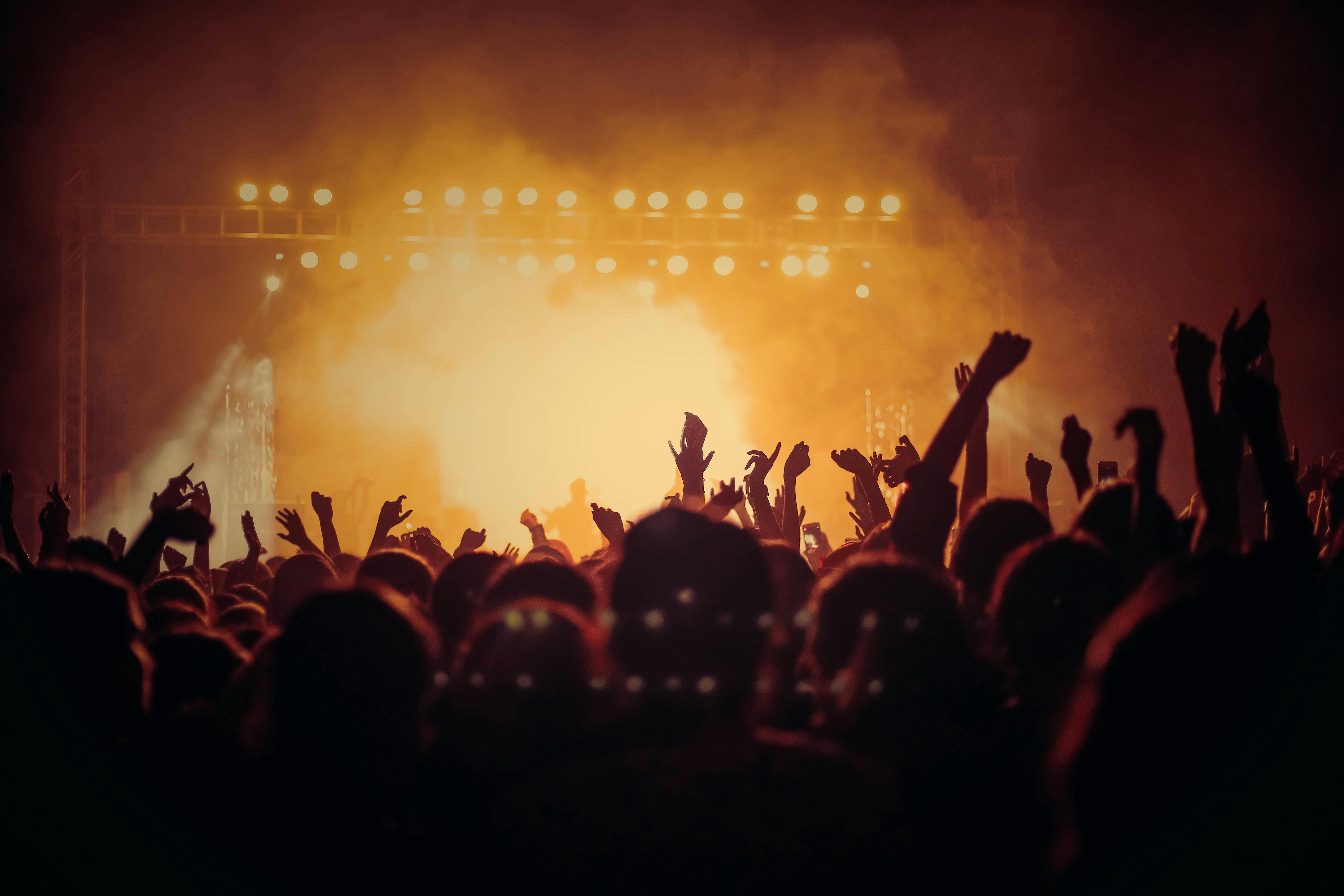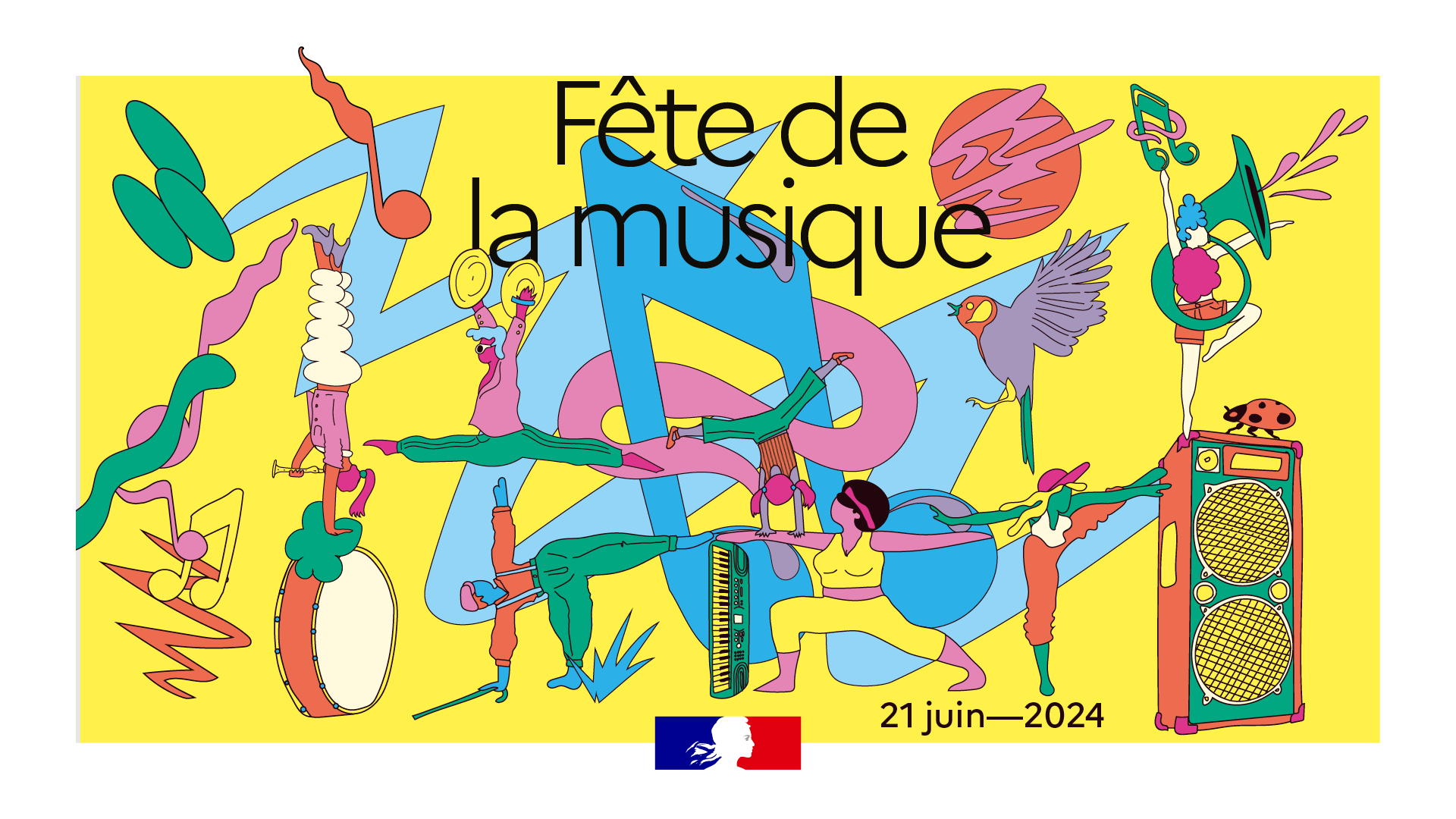Published the 06/17/2024 in Useful Information
La Fête de la Musique is an iconic event in France and in many countries around the world. Celebrated annually on June 21st, the Music Festival marks the beginning of summer with free concerts in streets, parks, public squares, and various unique venues. In this article, you will discover the origin of this festival, its evolution over the years, and its international expansion.
The Fête de la Musique, an unmissable event celebrated every year on June 21st, was created in 1982 by the French Minister of Culture, Jack Lang. The idea was proposed by the American composer Joel Cohen, who was working for Radio France at the time. Cohen had suggested the idea of "Saturnalia of Music" to celebrate the summer solstice with live music. This proposal was adopted and adapted to become La Fête de la Musique.
The essence of the Fête de la Musique is to promote music in all its forms, from the most traditional to the most contemporary, and to give all musicians, amateur or professional, the opportunity to perform in public. The event's slogan, "Make Music," is a clever play on words that encourages everyone to participate actively, whether as a musician or simply by enjoying the many free concerts organized throughout France.
This annual celebration of music has become a true symbol of French cultural and musical heritage, as well as a unifying and federating event on an international scale. The Music Festival invites all music enthusiasts to celebrate their love for this universal art and to discover new talents and musical genres.

Since its inception in 1982, the Music Festival has continuously grown and gained popularity. The very first edition, held on June 21st of the same year, was marked by the enthusiasm of thousands of musicians, both amateur and professional, who took to the streets of Paris and other French cities to celebrate music in all its forms.
Over the years, this annual celebration has become an unmissable event for all music lovers. The Fête de la Musique has successfully captivated an ever-wider and more diverse audience by offering a rich and eclectic program that honors all musical genres, from rock to jazz, classical music to electro, rap, and world music.
One of the great strengths of the Fête de la Musique is its ability to adapt and evolve to meet the expectations and tastes of all audiences. Each year, new musical genres and forms of artistic expression are incorporated into the festival, making it a true laboratory of musical creation and innovation.
Concerts and performances are organized in a variety of venues, sometimes unusual ones, ranging from public squares and parks to hospitals, prisons, and retirement homes. This inclusive and open approach makes music accessible to as many people as possible, fostering encounters and exchanges between artists and the public, as well as between different generations and cultures.
For the French, the Music Festival is more than just a musical event. It is a moment of sharing, conviviality, and discovery that is deeply embedded in French culture and traditions. Streets and squares in cities and villages transform into open stages where artists of all backgrounds and skill levels perform for free, creating a unique and festive atmosphere.
This day is an exceptional opportunity for amateur musicians to gain recognition and share their passion with the public, and for professionals to meet new fans and perform in unusual venues and contexts. The Music Festival is thus a true catalyst for talent and creativity, contributing to the dynamism and enrichment of the French music scene.
The social impact of the Music Festival is also considerable. This event fosters encounters and exchanges between generations and cultures, bringing together people of all ages, origins, and backgrounds around a shared passion for music. The outdoor concerts and activities offered as part of the Fête de la Musique attract diverse and varied crowds, thereby strengthening the social fabric and promoting social cohesion.
This social and cultural diversity is one of the great strengths of the Music Festival in France, which aims to be open, inclusive, and accessible to all. By celebrating music in all its forms and encouraging everyone's active participation, the Music Festival promotes values of sharing, tolerance, and respect, which are at the heart of French culture and values.
The popularity of the Fête de la Musique quickly spread beyond French borders, captivating many countries and cities worldwide. By the late 1980s, Europe was the first to embrace this musical event enthusiastically, with countries like Italy, Germany, Spain, and Switzerland following France's example.
Today, the Fête de la Musique is celebrated in more than 120 countries and 700 cities worldwide, demonstrating its global growth and impact. This international expansion is explained by the simplicity and universality of the idea behind this event: to celebrate music in all its forms and to offer everyone, whether musician or spectator, the opportunity to participate and share their passion.
The Fête de la Musique has thus become a symbol of freedom, cultural diversity, and unity, bringing together people and nations around a universal language: music. In each country and city where it is celebrated, the Music Festival is an opportunity to showcase the richness and diversity of musical traditions and expressions, as well as to foster encounters, exchanges, and dialogue between cultures and generations.

Since its inception, the Fête de la Musique has been the stage for numerous remarkable events and memorable concerts that have left a lasting impression on the history of music and in the hearts of the audience. Among these unforgettable moments, we can mention Jean-Michel Jarre's monumental concert in 1992, which brought together nearly two million people in Paris, making this event one of the largest musical gatherings ever organized.
Over the years, the Fête de la Musique has evolved and adapted to artistic and technological trends and innovations, integrating more contemporary forms of music and interactive and immersive artistic installations. Technological advancements have also expanded the event's reach and attracted an increasingly diverse and broad audience by offering virtual performances and live-streamed concerts.
In 2020, in response to the COVID-19 pandemic and the resulting health restrictions, many Music Festival concerts and events were streamed online, allowing the celebration to continue and bringing music lovers from around the world together, despite distances and obstacles.
These unforgettable moments and artistic and technological innovations testify to the vitality, creativity, and resilience of the Fête de la Musique, which remains more than ever a major and unmissable event in the French and international musical and cultural landscape. You can find this year's festivities program here
The Fête de la Musique has a significant economic impact, contributing to the vitality and growth of local cities and businesses. This musical event attracts thousands of visitors from across France and abroad each year, generating significant revenue in the hospitality, restaurant, and tourism sectors.
In addition to stimulating the local economy, the Fête de la Musique provides a valuable visibility platform for artists and independent labels. For musicians, whether amateur or professional, this event is a unique opportunity to perform in front of a large and diverse audience, to gain recognition, and to grow their fan base. The Music Festival thus serves as a springboard for emerging talents and a source of inspiration and motivation for all music enthusiasts.
Moreover, the Music Festival encourages collaboration and networking among artists, producers, concert venues, and other stakeholders in the music industry. This event provides an opportunity to form partnerships, discover new venues and technologies, and share ideas and experiences, thereby contributing to the strengthening and dynamism of the music sector as a whole.
Despite its immense success and popularity, the Music Festival faces several challenges and criticisms. Organizing an event of such magnitude requires meticulous and complex coordination among local authorities, organizers, volunteers, and participants. Crowd management, security, logistics, and administrative aspects are crucial elements to ensure the smooth running of the festivities and the satisfaction of all involved parties.
Furthermore, criticisms have emerged regarding the quality and diversity of musical performances offered during the Music Festival. Some purists and fans of classical or jazz music feel that the event favors popular and mainstream musical genres, to the detriment of more niche or less publicized styles (such as classical music or jazz). Others lament that the Music Festival is sometimes co-opted for commercial or marketing purposes, thus distancing the event from its original spirit and its purpose of being a popular and spontaneous celebration of music.
These issues and disputes underscore the importance of maintaining a delicate balance between the organizational, artistic, and ethical aspects of the Music Festival, in order to preserve its essence, popularity, and influence while meeting the expectations and requirements of all participants and the public.
Despite the challenges it faces, the Fête de la Musique continues to grow and reinvent itself to offer an ever richer and more diverse musical experience. Each year, new initiatives and partnerships emerge, contributing to the growth and sustainability of this iconic event.
Collaborations with cultural institutions, music schools, and local associations diversify the activities offered and strengthen community engagement. These partnerships also provide local and emerging artists with a platform to showcase their talents and share their passion with an ever wider and more varied audience.
The impact of the Fête de la Musique on the global music scene is undeniable. By celebrating music in all its forms and encouraging the participation of everyone, it promotes values of sharing, creativity, and cultural diversity. For example, the 2023 edition highlighted innovative initiatives to promote eco-friendly music, with concerts powered by renewable energy sources and awareness-raising activities about the environmental impact of the music industry. These initiatives and innovations demonstrate the Music Festival's commitment to staying relevant and addressing current issues while preserving its essence and founding values.
The future of the Fête de la Musique looks bright and promising, driven by a community of artists, professionals, and music enthusiasts. Whether you're a musician or just a music lover, join the festivities and let yourself be carried away by the magic of music this coming June 21st!
